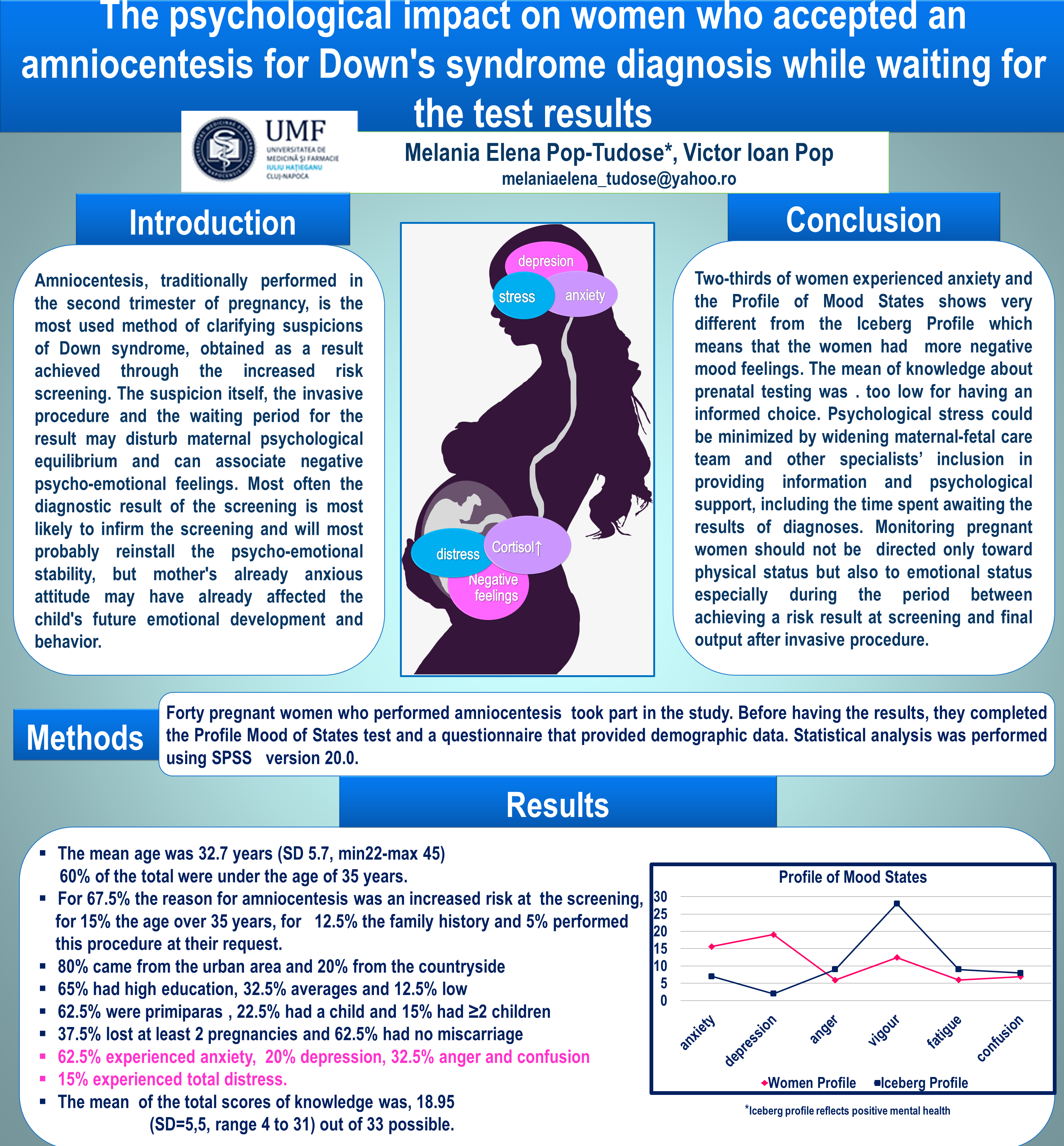
Melania E Tudose
PhD student Med Sc
Title: The psychological impact on women who accepted an amniocentesis for Down's syndrome diagnosis while waiting for the test results
Submitted Date: 24/10/2017
Biography
Melania E. Tudose is a midwife and an associate teacher in midwifery at Carol Davila University of Medicine and Pharmacy, Bucharest. She was an ob-gyn nurse between 1983 and 2009 when she became a licensed midwife (the valedictorian of the first promotion). She graduated a Master’s Degree in Genetics Counseling and she is a PhD student (4th year) in Medical Science (Medical Genetics). She is the first Romanian midwife accepted at a Doctoral School in Medical Science. She is the president of the Independent Midwives Association which is fighting to rehabilitate the midwifery profession and thus to increase the Romanian women’s and children’s health. In her career she helped more than 2500 women to bring their babies into our world. She is also working as a senior midwife, coordinator of the Labor and Delivery Rooms, at Buzău Women\'s Hospital (near Bucharest), Romania.
Abstract
Statement of the Problem: It\'s widely known that pregnancy is a period with a high psycho-emotional vulnerability. Any extra emotion could bring damage hard to cope with or manage. With all technological advances of today, the only method for clarifying a suspicion of Down syndrome is still the karyotyping which uses fetal tissue obtained through invasive procedures. The suspicion itself, the invasive procedure and the waiting period for the result may disturb maternal psychological equilibrium and can associate negative psycho-emotional feelings. In most situations the result refutes the suspicion but the harm could be already done because the psychological imbalance experienced by mother may have already altered the foetal-maternal attachment and the psychological system of the future child. Until now, most researches focused on the psychological aspects of the procedure, so there are few studies related to the emotional aspects associated to this period. The purpose of this study is to identify the negative emotions experienced during this period and to measure their level. \r\nMethodology & Theoretical Orientation: was performed an observational, descriptive and prospective study based on an applied questionnaire for knowledge and Profile Mood of States test on 40 pregnant women who performed the amniocentesis.\r\nFindings: 62.5% experienced anxiety, 20% depression, 32.5% anger and confusion, and the total analysis showed that 15% experienced total distress. The mean of knowledge scores was too low for having an informed choice, 18.95 (SD=5,5, range 4 to 31) out of 33 possible.\r\nConclusion & Significance: The period between having an amniocentesis and receiving the results is a tensioned one, often animated by negative feelings. For a less intense psychological effect, providing complete information and properly emotional support are essential. This requests time and personnel with competencies and abilities in holistic monitoring and providing medical information translated and embroidered on psychological support.\r\n
